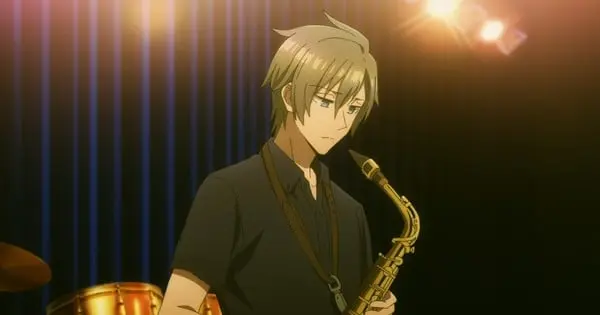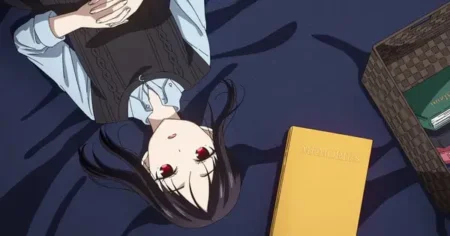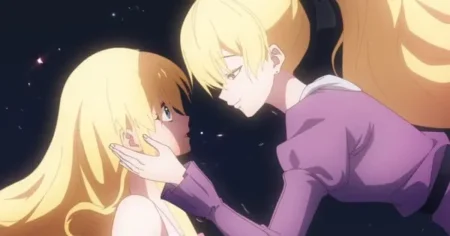Episode 6 of “Tasokare Hotel” marks a significant improvement, offering a compelling narrative that intertwines intrigue and emotional resonance. Unlike the previous episode, which was criticized for being vapid, this installment delves into the personal stories of the hotel’s guests and staff, creating a richer viewing experience.
A Harmonious Blend of Cases
The episode revolves around two central cases that are thematically linked. A “rocket-headed boy” named Shota, obsessed with spaceships, and a “record-headed guest,” Ogawa, a legendary saxophonist, find themselves at the Tasokare Hotel. Shota is struggling with his passion and relationships, while Ogawa’s life story provides guidance. These cases aren’t just isolated incidents; they are cleverly woven together to create a cohesive and meaningful story.
The Boy and His Spaceship Dreams
Shota’s story centers around his intense passion for spaceships and his complex relationship with his mother. He is portrayed as a youth consumed by his interests, sometimes to the detriment of his interactions with others.
The Saxophonist’s Serenade
Ogawa, the saxophonist, represents a figure of experience and fulfillment. His presence becomes a catalyst for growth, especially for Atori, another central character in this episode. Ogawa’s avuncular attitude and guidance of Shota are mirrored in his interactions with Atori.
Atori Takes Center Stage
One of the episode’s strengths lies in its exploration of Atori’s character. Previously a background figure, Atori is revealed to be a washed-up jazz musician. The episode delves into his backstory, sketching his journey from a passionate young musician to someone who abandoned his dreams after facing obstacles.
The Passion’s Double Edge
Atori’s story highlights the double-edged sword of passion. He impulsively moved to the U.S. to study the saxophone, but quickly gave up when he encountered challenges. This volatility, while admirable in its pursuit of dreams, ultimately reveals his immaturity and inability to handle the difficulties that come with pursuing a passion.
Finding a New Melody
Ogawa’s interactions with Atori form the heart of the episode. Ogawa shares his own experiences, revealing that his love for the saxophone grew gradually from a simple gig. He guides Atori towards the idea that a calling can develop over time, even after a period of directionlessness.
Thematic Resonance
The episode skillfully uses Shota’s and Ogawa’s stories to mirror Atori’s arc. Shota’s youthful passion and struggles reflect Atori’s past, while Ogawa’s wisdom offers a path forward. This thematic resonance strengthens the narrative and provides a deeper understanding of Atori’s character.
Youth and Experience
The episode contrasts youthful impatience with the calm voice of experience. Shota embodies the former, while Ogawa represents the latter. This dynamic creates a compelling dialogue about the nature of passion, perseverance, and finding one’s way in life.
Impermanence
The dying kitten in Shota’s story evokes a sense of impermanence. Despite the sad subject matter, this plotline tugs at the heartstrings. Shota’s story is a reminder to enjoy what you have while you have it.
Strengths and Weaknesses
While episode 6 is a high point for “Tasokare Hotel”, it’s not without its flaws. The connections within the episode could have been stronger with more development.
Visuals and Tone
The visuals are considered serviceable, and the mystery is straightforward. Comparisons have been made to “Death Parade” and “Shepherd House Hotel,” with the latter being noted for its similar use of a supernatural hotel to uncover truths about its residents.
Overall Impression
Despite these minor criticisms, episode 6 stands out as a well-crafted and emotionally engaging installment. It successfully develops its characters, explores meaningful themes, and leaves the audience with a sense of hope and inspiration.
The Hotel’s Unique Charm
“Tasokare Hotel” has a unique premise: a hotel existing between life and death, where lost souls seek answers. This concept allows for exploration of themes such as identity, memory, and the meaning of life. The eccentric staff and the hotel’s surreal atmosphere add to its charm.
Escape Room with a Twist
The series has been likened to an escape room, where characters must uncover clues about their past to move forward. This element of mystery and discovery keeps viewers engaged.
Death Parade Comparisons
The comparison to “Death Parade” is inevitable, given the similar themes of judgment and the afterlife. However, “Tasokare Hotel” distinguishes itself with its focus on character development and its more optimistic tone.
Final Verdict
Episode 6 of “Tasokare Hotel” is a testament to the series’ potential. By delving into the characters’ personal stories and exploring universal themes, it creates a compelling and emotionally resonant viewing experience. While the series may not reach the heights of “Death Parade”, it offers a unique and charming take on the afterlife.









